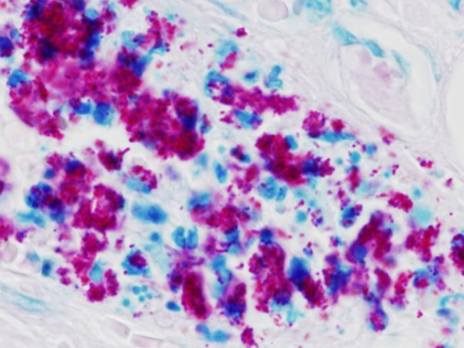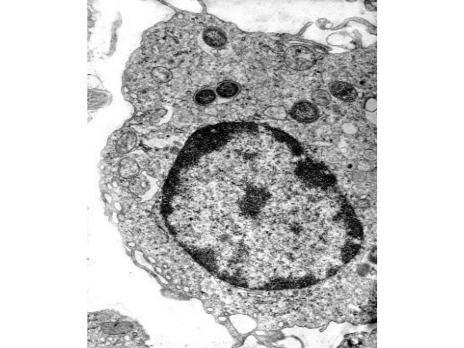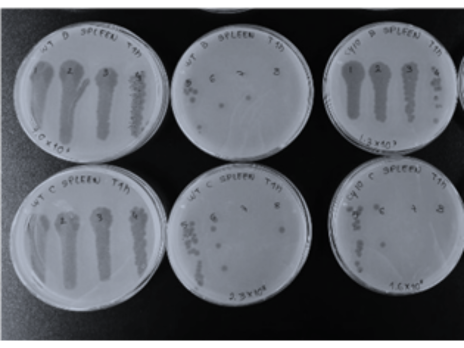
Buruli ulcer: immunometabolic requirements for host-mycobacteria interaction
Mycobacterium ulcerans is the causative agent of Buruli Ulcer (BU), a neglected tropical disease characterized by extensive necrotic skin lesions. M. ulcerans,…

Alexandra G. Fraga graduated in 2003 in Applied Biology and in 2010 recieved a PhD in Health Sciences from the Univeristy of Minho (UM). Her early studies at the Life and Health Sciences Research Institute (ICVS) focused on the events leading to spontaneous healing of experimental Buruli ulcer, using RNA-Sequencing in animal models of resistance (guinea pigs) and susceptibility (mice) to Mycobacterium ulcerans infection. Her research now focuses on the identification of interindividual genetic determinants that impact immunometabolic processes during Mycobacterium ulcerans infection, as well as on the modulation of the host immune response/bacterial activity by using new approaches of antimicrobial treatment (ex: phages and drug delivery systems). She is the Biosaftey Level 2 and 3 Coordinator at the ICVS and is the ICVS representative of the Portuguese Biosafety Laboratory Network, Lab-PTBioNet. She has FELASA Category C accreditation for animal experimentation by the Portuguese National Authority for Animal Health (DGAV) and a vast experience in the mouse and guinea pig model of infection under BSL2 and BSL3 conditions.

Alexandra G. Fraga graduated in 2003 in Applied Biology and in 2010 recieved a PhD in Health Sciences from the Univeristy of Minho (UM). Her early studies at the Life and Health Sciences Research Institute (ICVS) focused on the events leading to spontaneous healing of experimental Buruli ulcer, using RNA-Sequencing in animal models of resistance (guinea pigs) and susceptibility (mice) to Mycobacterium ulcerans infection. Her research now focuses on the identification of interindividual genetic determinants that impact immunometabolic processes during Mycobacterium ulcerans infection, as well as on the modulation of the host immune response/bacterial activity by using new approaches of antimicrobial treatment (ex: phages and drug delivery systems). She is the Biosaftey Level 2 and 3 Coordinator at the ICVS and is the ICVS representative of the Portuguese Biosafety Laboratory Network, Lab-PTBioNet. She has FELASA Category C accreditation for animal experimentation by the Portuguese National Authority for Animal Health (DGAV) and a vast experience in the mouse and guinea pig model of infection under BSL2 and BSL3 conditions.
1. Contribution in the characterization of the host inflammatory response to M. ulcerans;
2. First description of an intracellular growth phase for M. ulcerans;
3. Elucidation of mechanisms of macrophage-mediated immune control for this pathogen;
4. First description of teh guinea pig as a model of sponatenous healing for M. ulcerans infection;
5. Identification of host genetic factors associated with suscpetibility/resistance to Buruli Ulcer.

Mycobacterium ulcerans is the causative agent of Buruli Ulcer (BU), a neglected tropical disease characterized by extensive necrotic skin lesions. M. ulcerans,…

Buruli Ulcer (BU) is a neglected infectious disease responsible for massive necrotic skin lesions. BU is the third most common mycobacteriosis worldwide,..

Life-threatening human infectious diseases caused by bacterial pathogens are now re-emerging, in part due to increased resistance to antibiotics.



Phone: +351 253 604 967
Fax: +351 253 604 809
Email: icvs.sec@med.uminho.pt
Life and Health Sciences
Research Institute (ICVS)
School of Medicine,
University of Minho,
Campus de Gualtar
4710-057 Braga
Portugal

Copyright ©2022 ICVS. All Rights Reserved



Copyright ©2022 ICVS. All Rights Reserved
Life and Health Sciences
Research Institute (ICVS)
School of Medicine,
University of Minho,
Campus de Gualtar
4710-057 Braga
Portugal



Copyright ©2022 ICVS. All Rights Reserved
Life and Health Sciences
Research Institute (ICVS)
School of Medicine,
University of Minho,
Campus de Gualtar
4710-057 Braga
Portugal

